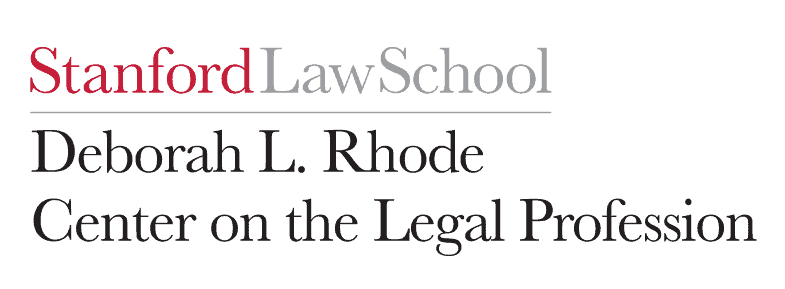The Deborah L. Rhode Center on the Legal Profession at Stanford Law School is proud to announce that Lisa Colpoys will be joining the Center as the Justice Innovation Lead for the Filing Fairness Project, a Center initiative focused on standardizing and simplifying court filings across multiple states. Colpoys brings extensive experience as a leader and innovator in public service and has spent her career working to create and deliver new ways for people to solve their legal problems. Colpoys most recently served as leader of Illinois Court Help, a program she launched for the Illinois Courts to help court users navigate complex court processes. Before joining the Illinois Courts, she served as a consultant to the Michigan Justice for All Project, Program Director at the Institute for the Future of Law Practice, and Executive Director of Illinois Legal Aid Online.
“We are thrilled to have Lisa join us to lead this dynamic and ambitious project,” said Professor David Freeman Engstrom, Co-Director of the Rhode Center and one of the leaders of the Filing Fairness Project, “She brings a truly extraordinary record of transformative impact on entrenched and complex systems. The Filing Fairness Project will benefit enormously from her leadership.”
“I am very excited to join the Rhode Center team and lead the Filing Fairness Project,” said Colpoys. “I look forward to utilizing all my prior experiences to help courts across the county standardize and simplify filing processes—and, in turn, improve filing accessibility and usability for litigants.”
About the Filing Fairness Project
The Filing Fairness Project is an ambitious, multi-jurisdictional effort to simplify court filing processes and improve access to and the administration of justice by leveraging readily available technology. Plain-language interview systems to gather information and generate complex forms already exist for tax filings, mortgage applications, and benefits administration. Court filings have lagged behind these applications because of institutional history, inertia, and fragmentation, which makes individual-jurisdiction solutions cost-prohibitive. This is a solvable problem.
By partnering with several state court systems, the Project aims to encourage the development of sustainable, multistate online solutions. These solutions will provide user-driven, accessible efiling options for litigants navigating the legal system and, by extension, help improve the accuracy and relevance of court filings and increase access to justice. To ensure that these solutions are sustainable, courts must see benefits in the form of cost reduction and efficiency, and technology providers must be willing to make the necessary investments, both now and over time. The initial focus is on name change petitions, fee waiver requests, and eviction answers—filing types where the challenges of self-representation are particularly pronounced.
The Filing Fairness Project is led by Mark Chandler, former Cisco Chief Legal Officer; Professor David Freeman Engstrom, LSVF Professor in Law and co-director of Stanford’s Deborah L. Rhode Center on the Legal Profession (Rhode Center); Margaret Hagan, Director of the Stanford Legal Design Lab; and Todd Venook, a Lecturer in Law at Stanford Law School and Associate Director of the Rhode Center. It is supported by the Ford Foundation and the Mousetrap Foundation.
If you are a technology provider or court official interested in learning more about the Filing Fairness Project, we are eager to hear from you. Please reach out using this link.
About the Rhode Center
Through a multidisciplinary approach to teaching, research, and policy, the Rhode Center works to make civil justice more equitable, accessible, and transparent and to promote the legal profession’s commitment to the public interest. Since its founding at Stanford Law School in 2008 by Professor Deborah Rhode, the Center has become a leading voice in the scholarly and policy debates on the present and future challenges facing the profession, including particularly the crisis in access to justice, the role of technology in resolving it, and the need for increased diversity. The Center is also a vivid example of the unique role law schools can play to connect theory with practice and translate scholarly research into real-world impact to benefit both the profession and the public.
